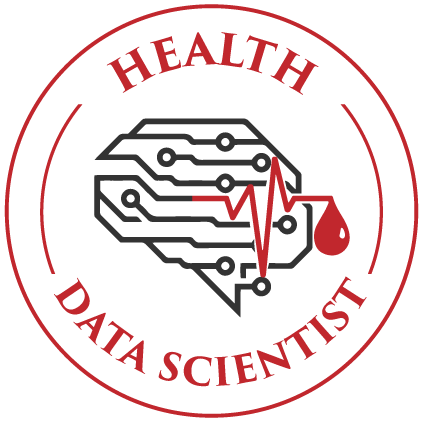What initially sparked your interest in medicine, specifically radiation oncology?
My initial interest in medicine grew from a deep desire to help cure my grandmother and other ill people as a very young child. This passion continues to motivate my pursuits in clinical care and research. As I explored different areas of medicine, I found radiation oncology was at the forefront of bringing technology, quantitation, and spatial and temporal considerations of treatment together with a team-based approach to ensure safe, high-quality patient-centered care.
You were recently appointed MD Anderson’s first-ever Chief Data Officer. What are your main priorities in this role?
First of all, I’m very excited and honored to serve as the institution’s very first Chief Data Officer. My top priority in this role is our people, who generate and use the data. Building a culture around robust data stewardship will elevate the quality and value of our data and increasing data literacy will ensure we build a data strategy together with the institution that allows us to maximize the insights to serve our pursuit of Making Cancer History®.
What led to your focus on data strategy?
My research interests have been focused on utilizing quantitative imaging to guide personalized cancer treatments. During my research, it became apparent that the biggest hurdle to overcome was to improve the consistency and quality of our data management — starting from the point of acquiring the images to processing images and completing analyses or measurements and interpreting these results. These same challenges are present whether you are dealing with imaging data, any -omics data or clinical data.
This resulted in my focus to build the capabilities for a robust data and metadata supply chain in order to facilitate scientific discovery with high potential for translation to impact personalized cancer treatments.
To what extent do you see AI as part of the mix?
Artificial intelligence approaches could be used to improve consistency and efficiency in measurements, to support quality control and to enable analytics for insight generation. At the same time, the growth of AI has helped us realize the value and need for high quality data along with its metadata — both which are necessary for us to effectively use all the available data — especially as the volume of data being generated in care and research is growing faster by the minute.
What excites you most about the future of AI?
When I think about all that we strive to accomplish with data, I’m reminded of a quote by Hippocrates, the father of medicine: “Declare the past, diagnose the present, foretell the future.” It’s an apt motto that, nearly 2,400 years later, accurately describes our pursuit of personalized care. We are fortunate to now have emerging technology, including AI, available to assist us in utilizing all the available data and to augment our human capabilities in order to fulfill this goal.
What do you see as the barriers to truly patient-centered, data-driven healthcare?
To be patient-centered, we must measure endpoints that are relevant and connected to the interventions, considering all perspectives.
To be data-driven, we must generate data and analyses that are reproducible and translatable with transparency in its uncertainties.
These are not easily achieved and require collaborative efforts across the healthcare field, including clinical teams, researchers, vendors and, most importantly, our patients.
With your passion for growing diversity in STEM, you are an active educator and mentor, serving as chair of the not-for-profit organization Women in Cancer. Why is fostering diversity and mentoring the future generation of oncologists an important mission for you?
Unique perspectives — shaped by each individual’s background, expertise and life experiences — strengthen the collective knowledge and strategy in tackling complex challenges as a team. Enabling these differing perspectives to be heard through diversity, equity and inclusion efforts can help change the dynamics across groups, organizations and communities. Opening up opportunities through mentorship and sponsorship are critical to shaping our future.
Looking at our data through the various lenses and perspectives will not only lead to creative solutions and accelerate discovery, but also will ensure we objectively and critically evaluate our data-driven approaches for just and appropriate applications.
What advice would you give someone starting their career in medicine or medical AI?
Listen. Many people listen with a filter or listen waiting to respond. By listening with an open mind and asking inquisitive questions, you will continue to learn, to gain broad perspectives that will inspire relevant and impactful research questions, and to connect with individuals in a meaningful way that brings value and joy to your life.
Caroline Chung, M.D., is the chief data officer (CDO) and an associate professor in Radiation Oncology at The University of Texas MD Anderson Cancer Center. She holds a joint faculty position in Diagnostic Imaging with a clinical practice focused on CNS malignancies. Her research interest is focused on quantitative imaging measures of detecting tumor development, characterizing tumor behavior and characterizing radiation-induced toxicities.
As the institution’s first-ever CDO, Chung is responsible for shaping MD Anderson’s data strategy and leading its implementation from an operational and cultural perspective. She oversees the Data Governance and Provenance Office and institutional data offices, as well as leads the formation of the principles, policies and programs for stewardship, advocacy and custodianship of data.
Dr Chung is speaking at AIMed’s Global Summit, taking place live and in person in San Francisco, May 24 to 26, 2022. Book your place now!
The post Building a culture around robust data stewardship appeared first on AIMed.
Author:
